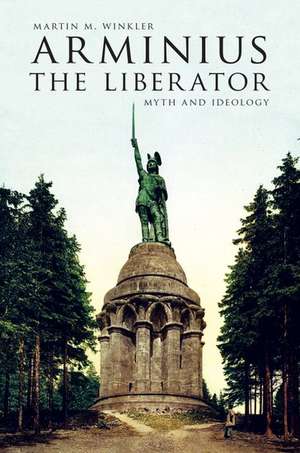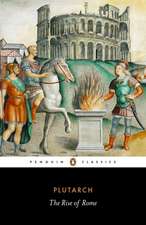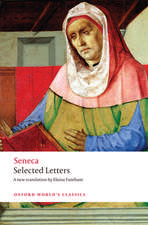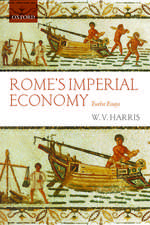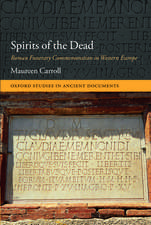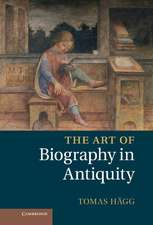Arminius the Liberator: Myth and Ideology
Autor Martin M. Winkleren Limba Engleză Hardback – 25 noi 2015
Preț: 754.95 lei
Preț vechi: 980.45 lei
-23% Nou
Puncte Express: 1132
Preț estimativ în valută:
144.47€ • 149.98$ • 120.47£
144.47€ • 149.98$ • 120.47£
Carte tipărită la comandă
Livrare economică 22 martie-05 aprilie
Preluare comenzi: 021 569.72.76
Specificații
ISBN-13: 9780190252915
ISBN-10: 019025291X
Pagini: 382
Ilustrații: 39 illustrations
Dimensiuni: 236 x 160 x 28 mm
Greutate: 0.68 kg
Editura: Oxford University Press
Colecția OUP USA
Locul publicării:New York, United States
ISBN-10: 019025291X
Pagini: 382
Ilustrații: 39 illustrations
Dimensiuni: 236 x 160 x 28 mm
Greutate: 0.68 kg
Editura: Oxford University Press
Colecția OUP USA
Locul publicării:New York, United States
Recenzii
The book is very well organised, well written, nicely illustrated and a pleasure to read. It provides a comprehensive overview of ways in which the story of Arminius has been understood and transformed for many different purposes from the sixteenth century to today.
This is a fantastic compendium of material concerning Arminius, bound together with cogent argumentation and composed in a most agreeable style, and should be of interest for both its specific subject and its broader lessons concerning the transformation of history into myth... The text is lavishly illustrated with photographs, reproductions of film posters and programs, and still images from films, all of which complement the vivid discussion of their imagery and representation.
Winkler presents readers with an eclectic, far-ranging work beginning with the earliest Roman accounts of Arminius and ending with twenty-first century movies ... Winkler's careful argumentation rewards the patient reader and his insightful film critiques will be of interest to scholars from a number of disciplines. Historians in particular will benefit from Winkler's ability to look beyond scholarly treatments of Arminius to his reception in popular culture. For these reasons, Arminius the Liberator will stand as an important addition to the literature on the modern appropriation of the remote past, providing a much-needed glimpse into the ways in which antiquity lives on -- for better or for worse -- in the modern imaginary.
The book is very well organised, well written, nicely illustrated and a pleasure to read. It provides a comprehensive overview of ways in which the story of Arminius has been understood and transformed for many different purposes from the sixteenth century to today. It leads the reader to think about other instances of heroes of the past, some more real than others, such as Boudica, King Arthur and Robin Hood, all of whom have been used and transformed over the centuries ... Winkler's book provides an excellent series of examples that can help us to think critically about the process of presenting the past.
the book will be a useful contribution to classical reception literature, but also to the history of ideas and the social history of propaganda, of which it is a study in its own right.
This is a fantastic compendium of material concerning Arminius, bound together with cogent argumentation and composed in a most agreeable style, and should be of interest for both its specific subject and its broader lessons concerning the transformation of history into myth... The text is lavishly illustrated with photographs, reproductions of film posters and programs, and still images from films, all of which complement the vivid discussion of their imagery and representation.
Winkler presents readers with an eclectic, far-ranging work beginning with the earliest Roman accounts of Arminius and ending with twenty-first century movies ... Winkler's careful argumentation rewards the patient reader and his insightful film critiques will be of interest to scholars from a number of disciplines. Historians in particular will benefit from Winkler's ability to look beyond scholarly treatments of Arminius to his reception in popular culture. For these reasons, Arminius the Liberator will stand as an important addition to the literature on the modern appropriation of the remote past, providing a much-needed glimpse into the ways in which antiquity lives on -- for better or for worse -- in the modern imaginary.
The book is very well organised, well written, nicely illustrated and a pleasure to read. It provides a comprehensive overview of ways in which the story of Arminius has been understood and transformed for many different purposes from the sixteenth century to today. It leads the reader to think about other instances of heroes of the past, some more real than others, such as Boudica, King Arthur and Robin Hood, all of whom have been used and transformed over the centuries ... Winkler's book provides an excellent series of examples that can help us to think critically about the process of presenting the past.
the book will be a useful contribution to classical reception literature, but also to the history of ideas and the social history of propaganda, of which it is a study in its own right.
Notă biografică
Martin M. Winkler is University Professor and Professor of Classics at George Mason University. He is the author or editor of several books and has published many articles on Roman literature, the classical tradition, and especially classics and cinema.
